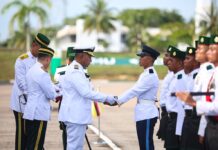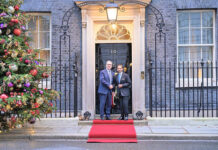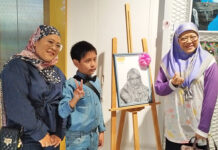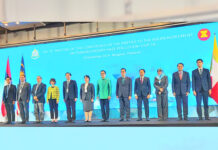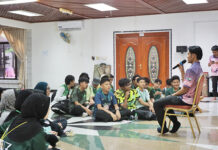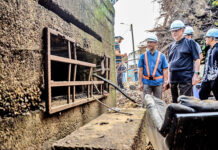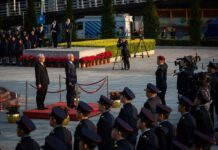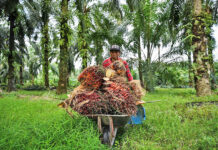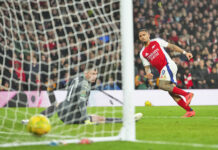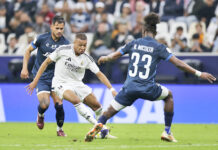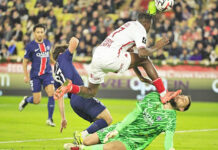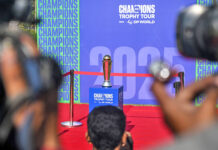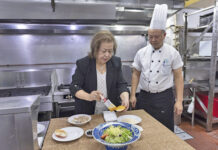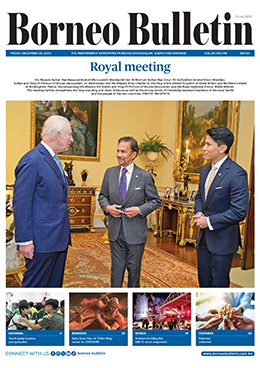Local football has been a hot topic in Brunei lately. On the positive, it shows that we care about its development. Some have called for an overhaul but is it the answer? Better yet, what are our expectations?
Some have spoken about reclaiming the former glory during an era that proved we could be successful in regional and international competitions. It is easy to forget that we have only participated in two ASEAN Football Federation (AFF) Championships – in 1996 and 2022.
Thus, our 6-3 aggregate win against Timor-Leste to qualify for the tournament last year was a relatively good achievement.
On where the national team stands, the answer can easily be found. According to FIFA, we are ranked 190th out of 208 participating nations. It is important to note that Brunei is not the only country to suffer heavy defeats. During the qualifying round of the 2019 Asian Football Confederation (AFC) Cup, we did well against Mongolia by winning 2-1 in the second leg and losing 3-2 on aggregate. In the group stage qualifiers, Mongolia secured two wins from eight matches but endured a 14-0 defeat by Japan. In another group, Cambodia played Iran twice and suffered 10-0 and 14-0 losses.
Someone has remarked that our youth team lost 11-0 to “war-torn” Syria. However, Syria is ranked 94th, ahead of the highest ranked Southeast Asian country, Vietnam, and two spots above Palestine. My point is that we need to better manage our expectations of the national team and respect the quality of countries they are up against.
Secondly, the scoreline doesn’t tell the full story. It is important to study the team’s playstyle and performance. Generally, formations and playstyles depend on several factors, such as the coach’s philosophy, adjusting to the opposing team’s weaknesses and physical attributes of the players. For example, a team with a height advantage may consider playing more crosses and attacking set-pieces.

So what tactical style do we enjoy? Attractive and fast-paced football that has less chances of winning? Or less attractive version but more result-oriented? Whatever the tactic, it would matter very little unless our players could execute the plans of their coaches.
At the 2022 AFF Suzuki Cup, our national team scored two goals and conceded 22 goals from four matches. The statistics were not great, yet there were moments when the team fought well to grind out a result and protect the goal difference. Sadly, within short periods, the team imploded and conceded a quickfire of goals. For instance, we conceded on the 7th, 12th, 50th and 51st minutes against the Philippines and 59th, 60th and 68th minutes against Indonesia. We did well to hold Thailand, the eventual champions, to a 2-0 lead but then conceded at the 88th, 91st and 93rd minutes and lost 5-0.
Some say our footballers are part-timers and their commitment is questionable. Yet they may not realise that these players maintain a high level of physical fitness and strength. Thus, the implosions are more of an indication that the issue lies in the lack of mental resilience and match fitness.
To gain match fitness, a team needs to play as much as possible. But some may not realise that international friendlies and tournament opportunities are limited. We are lucky to have played against Sabah FC because it is a formidable team that finishes third in a competitive Malaysia league that includes the dominant Johor Darul Ta’zim FC.
Beyond the football pitch, there is the question of football coverage and fan engagement. My expectations for the coverage on the match against Sabah FC were low, yet the camera angles were decent with good clips of the action on the field and the atmosphere of both Brunei and Sabah FC supporters.
In some sports broadcast, half time breaks often include punditry discussions and match highlights. In this case, there were not even any highlights. Ideally, they could be used for adverts or clips from the media conference or interviews, so viewers could learn more about the coaches and players as well as fun facts about Brunei and Sabah football history.
Quality coverage matters because it raises the profile of a football team, thus attracting sponsorship. Generally, we support nations and clubs as the team is bigger than any star player. Yet it is understandable that fans support certain nations and clubs because of the players they look up to. For example, Inter Miami and Al-Nassr FC supporters are growing now because of Lionel Messi and Cristiano Ronaldo.
I am impressed by the number of foreign players in our current league, including goal machine Leon Sullivan Taylor from Liberia. It is an exciting season because there appears to be a new Brunei Super League champion. Of course, how would we know all this if there is not enough hype and media outreach? The football authority needs to better value the role of sports reporters and influencers.
When it comes to tournaments, we should consider rebranding Brunei’s FA Cup. For example, in parts of the Middle East, domestic tournaments could be renamed the King’s Cup, the Emir Cup or the Crown Prince Cup. The point is to add more prestige to the event.
Some have spoken about the importance of sponsorship but the question is: how do we attract more sponsors? We need to remember that the private sector would be interested only if there were visible returns of investment. Thus, in addition to prestige, football ought to be community-centric.
Imagine that a DPMM FC match ticket is priced at BND10-20 and for Brunei Super League, at BND5-10, but all proceeds go to charity. This could attract major companies such as banks, telco companies and hotels to become key sponsors because it would align with their corporate social responsibility. We as supporters would then be more open to paying for the tickets because we knew it would go to a good cause. We could even pitch local all-stars against foreign all-stars in a charity match.
My vision of Brunei football is that it would become a growing industry that positively contributes to our economy, including generating employment, and lays out realistic objectives and strategies.
The English Football Association sets out several objectives including winning a major tournament and delivering quality football fields. Among their strategies to achieve these goals is ensuring integrity through a trusted and progressive football association.
We could set a realistic target, such as being ranked inside the top 150 in the world or reach a top three group stage finish in the AFF Championship by 2035. We could also aim to host the Hassanal Bolkiah Trophy for ASEAN Youth Football Championship in 2026 to commemorate the 80th birthday of His Majesty Sultan Haji Hassanal Bolkiah Mu’izzaddin Waddaulah ibni Al-Marhum Sultan Haji Omar ‘Ali Saifuddien Sa’adul Khairi Waddien, Sultan and Yang Di-Pertuan of Brunei Darussalam. The benefit of these targets is that it provides measurable progress and objectives, which would remain constant with a new generation of committee members.
There are talks of hiring quality coaches but we need to remember that few coaches would brave managing a team with a less-than-flattering record. Perhaps by making our objectives clear, we may be able to attract quality coaches. That being said, we have been fortunate to get experienced foreign staff such as Coach Rivera and technical director Paul Munster for the local staff to learn from.
Consequently, it is easy to call for an overhaul of the football association but it will take much more than fresh faces to take our football to the next level. What we need is a strong commitment by the government, the private sector and the community, driven by a future-ready generation with vision, creativity and sound strategies. Ultimately, my hope is that any success made will not only advance our football development but also benefit the entire local sports industry.
Bruneian Geordie

